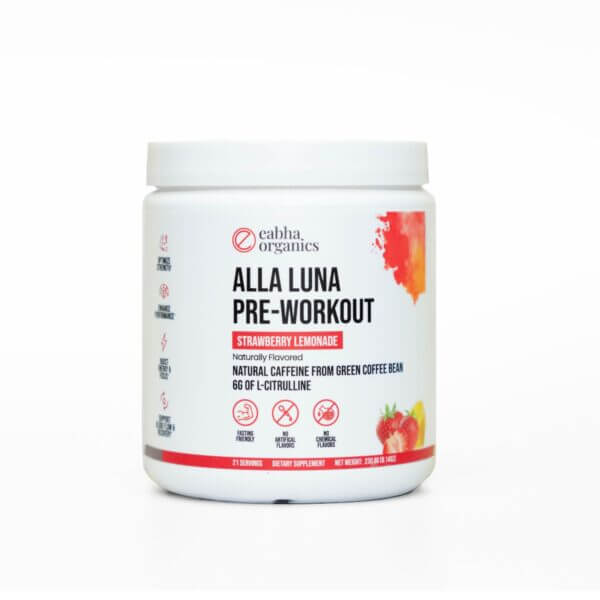Incorporating strength training into our fitness routine is highly beneficial for our overall health. It aids in weight management and lowers the risk of heart disease, cancer, and diabetes. Additionally, research confirms that strength training helps balance hormones.
The link between strength training and healthy hormones:
Maintaining healthy hormone levels is crucial for men and women, and exercise is essential in achieving this. Regular physical activity can help men maintain normal to above-average levels of total and free testosterone, as well as, a healthy balance between testosterone and estrogen. Weightlifting, in particular, has been found to regulate sex hormones like testosterone and estrogen, especially as men and women age. As men get older, their testosterone levels tend to decline due to a lack of exercise and poor diet. This can have a negative effect on muscle mass and hormone balance. During and after menopause, women produce less and less estrogen and progesterone. Regular exercise and strength training can increase metabolism and build lean muscle mass, which helps regulate hormone production and combat side effects of menopause.
Best Types of Exercises:
There are numerous exercises to choose from when you hit the gym, ranging from aerobics and yoga to slow-paced cardio. However, nothing helps balance hormones like weightlifting. Compound movements, like squats, deadlifts, bench presses, and pull-ups, require multiple muscles at once to perform the exercise. Build your strength training routine around powerful movements like these for maximum benefit.
Hormonal Response:
The benefits of strength training go beyond noticeable changes, such as weight loss, increased muscle mass, energy, and metabolic health. Hormones also play a vital role in building muscle and strength. These chemical messengers regulate growth, metabolism, fertility, and the body’s response to physical stress. Once released into the bloodstream, hormones travel freely throughout the body, altering protein synthesis upon reaching their target. They facilitate communication between different body parts and orchestrate changes dictated by the brain. However, hormone production during exercise can be negatively affected by factors like overtraining, poor sleep and recovery, and an unhealthy diet. Building healthy habits and finding a sweet spot in your exercise routine is essential to balance hormones and avoid overtraining.
How long should we work out for?
Engaging in regular exercise and weightlifting can be a beneficial way to stay in shape, manage weight, and prevent serious illnesses. However, excessive exercise can also have negative effects. Therefore, it is important to determine the appropriate amount of time to devote to exercise to promote optimal health. There isn’t a specific duration of time but there are guidelines that you can keep in mind to help you achieve the greatest results. Spending countless hours in the gym and doing long hours of cardio and weights can negatively impact your hormones. Keeping your workout to an hour or hour and a half seems to be a sweet spot for helping you balance hormones. Get a feel for your body’s limit by assessing how you feel after your workouts. If you’re feeling completely gassed, it’s possible you’re overtraining or simply not prioritizing quality sleep and a proper diet.
How do men benefit?
Regardless of age, exercise can be beneficial for men. However, studies show that testosterone levels decline as men age. Regular exercise can aid in maintaining natural testosterone levels within the normal range, which can lead to improved longevity by promoting metabolic health and reducing the risk of heart disease, diabetes, cancer, and high blood pressure. Therefore, it is important to consider the role of exercise in balancing hormones.
How do women benefit?
Engaging in weightlifting exercises can have a significant positive impact on a woman’s hormonal function. This form of exercise can contribute to the balance of testosterone and estrogen levels, leading to improved symptoms of PCOS and enhanced metabolic health. During menopause, women produce less estrogen and progesterone, which leads to a reduced metabolic rate and muscle mass. Strength training can help women boost their metabolism, build lean muscle mass, and stimulate the production of essential female hormones.
Best Supplements:
Achieving balanced hormone levels and maintaining good health and energy can be challenging, but supplements can be useful. Vital nutrients like vitamin D, zinc, and magnesium, along with B12, offer remarkable benefits and can complement a healthy diet of whole foods. If you’re searching for a supplement that contains all the necessary ingredients in a single formula, then our custom-made Total Balance supplement is the perfect choice. It’s created to address your specific needs by using minerals and herbs your body may lack, such as zinc, magnesium, and ashwagandha, which can effectively lower cortisol levels, boost testosterone, improve sleep, and promote overall hormonal health. Additionally, organic compounds like diindolylmethane can help regulate estrogen and testosterone levels. Eabha Organics takes pride in sharing this formula that can help you achieve optimal health by utilizing key ingredients that serve a specific purpose.









